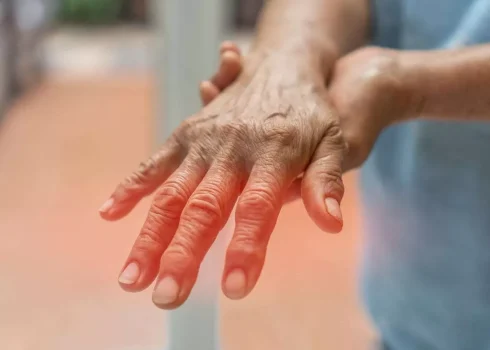
Your body absorbs alcohol more slowly when you have food in your stomach. Those who drink on an empty stomach will feel the effects of alcohol more quickly. A person who has not eaten will hit their peak blood alcohol level between 30 minutes and two hours after consumption, depending on the amount of alcohol consumed. Drinking water does not affect the speed of alcohol metabolism in the body. A regular-sized drink will take 1 to 1.5 hours to process, no matter how much water you consume along with it. However, drinking water between alcoholic beverages can help stave off a hangover or reduce its severity.
Does Water Flush Out Alcohol?
But a 2007 study published in the journal Alcohol and Alcoholism found that ETG tests failed to detect alcohol more than 26 hours after consumption. On average, it takes about one hour for the body to eliminate one standard drink. Individuals who have higher tolerances to alcohol, such as people with alcohol addiction, may eliminate alcohol more quickly. You can drink water to stay hydrated, but it will not help you flush out alcohol faster. There is no way of speeding up alcohol metabolism in the body overnight. Traditional tests can accurately detect alcohol consumption within the past 12 hours, and it can detect how much you’ve consumed.
How Long Does Alcohol Stay In Your System?
Recognizing the symptoms and risks of alcohol withdrawal is crucial for a safe recovery journey. Seeking professional help and embracing a holistic approach can improve the chances of successfully overcoming alcohol dependence. If your body has developed a tolerance to alcohol, completely stopping—and attempting to flush it out of your system—can lead to withdrawal.
- Someone may test negative for drinking alcohol when they have had alcohol recently.
- Moreover, you shouldn’t use NyQuil as a sleep aid or for long-term treatment of symptoms.
- Another thing that will help your liver’s journey in recovery is good nutrition.
- The liver breaks down most consumed alcohol, eliminating 95% of it from the body.
Health Conditions

Ethyl Glucuronide is present in the body after consuming alcoholic beverages. Green vegetables contain vital minerals, amino acids, and other essential nutrients to help the body recover after excessive alcohol consumption. In addition, high levels of fibre are beneficial for digestive issues such as diarrhoea or constipation that may arise after drinking. A hangover is a term that designates a set of undesirable effects that occur when you drink too much.
Life Kit
You must increase your water intake after drinking too much alcohol to rehydrate. Dehydration caused by alcohol is the primary reason for hangovers. So, it is essential to make sure you drink plenty of water before, during, and after drinking. Here is all the necessary information about how the human body metabolises alcohol, how how to flush beer out of your system long it takes to eliminate alcohol from your system, and how to speed up this process. It can be hard to find (or even know) the balance of how much alcohol your body is able to handle.

What to know if you’re a casual drinker
Our body Twelve-step program is so marvelous that it can help us flush out alcohol through sweating, breathing, and urinating. The rest of the contents go through the liver, which starts the detoxifying process. In the short term, alcohol is processed through your liver in about an hour. Essentially, feeling “drunk” is when your liver becomes too overwhelmed to properly process alcohol, so it overflows temporarily into your bloodstream. This is what causes you to feel light-headed or tipsy after multiple alcoholic drinks. While it can be temporarily enjoyable to consume alcohol, having it in your system doesn’t stay fun for long.
- Rest allows your body to heal and recover faster, helping you feel better sooner.
- Women have less dehydrogenase, which is a liver enzyme that breaks down alcohol, than men.
- Individuals with more body fat generally have a higher BAC because low-water fatty tissue cannot absorb alcohol as well as high-water muscle tissue can.
- Each of the above drinks contains 0.6 ounces of pure ethanol, which counts as a single serving of alcohol.
- Liver impairment, whether or not alcohol-related, can limit your ability to eliminate alcohol from your body.
Here, a physician breaks down the alcohol metabolism process and how booze can be detected in your body. Your body processes alcohol at the rate of around one standard-sized drink per hour, but booze can be detected in your blood, breath, and pee for a long time afterwards. For a person weighing 150 pounds, for example, one standard drink will increase their blood-alcohol concentration by about 0.02%, but the body can only remove about 0.016% per hour on average. Therefore, even if you consume only one drink per hour, your blood alcohol concentration (BAC) will continue to increase. According to the National Institute on Alcohol Abuse and Alcoholism, water itself doesn’t directly flush alcohol out of your system, but it plays a crucial role in the detox process. Rehydrating by drinking water can alleviate the symptoms of dehydration, such as headache and dizziness, but it does not speed up the metabolism of alcohol in your liver.

Fatigue, mood swings and brain fog are just a few of those symptoms. Vomiting, tremors and increased heart rate obviously interfere with your daily life. Delirium tremens is very severe and can include seizures and hallucinations. A fact that often surprises friends and family of those struggling with alcohol is how the fear of withdrawal can keep someone trapped in the cycle of addiction. Withdrawal symptoms can be intense and frightening, and it’s understandable that individuals may want to avoid these symptoms by continuing to drink. However, this only deepens the addiction and increases the potential for even more severe withdrawal symptoms in the future.
- Read more about what kind of supplements can help you recover from binge drinking.
- Most heavy drinkers simply wait it out, letting their body process the amount of alcohol consumed.
- Sleep is crucial as it allows the body to focus on metabolizing alcohol without interference from additional alcohol consumption.
- After the alcohol passes through your stomach, small intestine and bloodstream, your liver starts its cleanup.
This contributes to women reaching higher blood alcohol levels than men despite drinking the same amount of alcohol. The more you drink, the longer it takes for alcohol to leave your body. One standard drink, which is equal to 12 ounces of regular beer, will generally raise a 150-pound adult’s blood alcohol content to between 0.02 and 0.03.